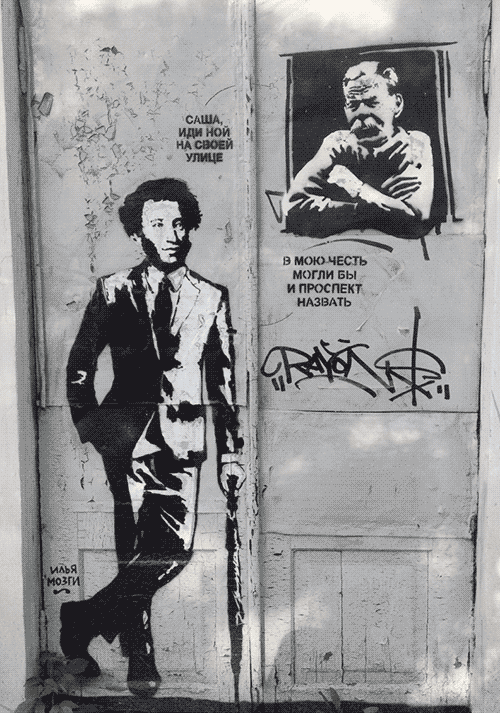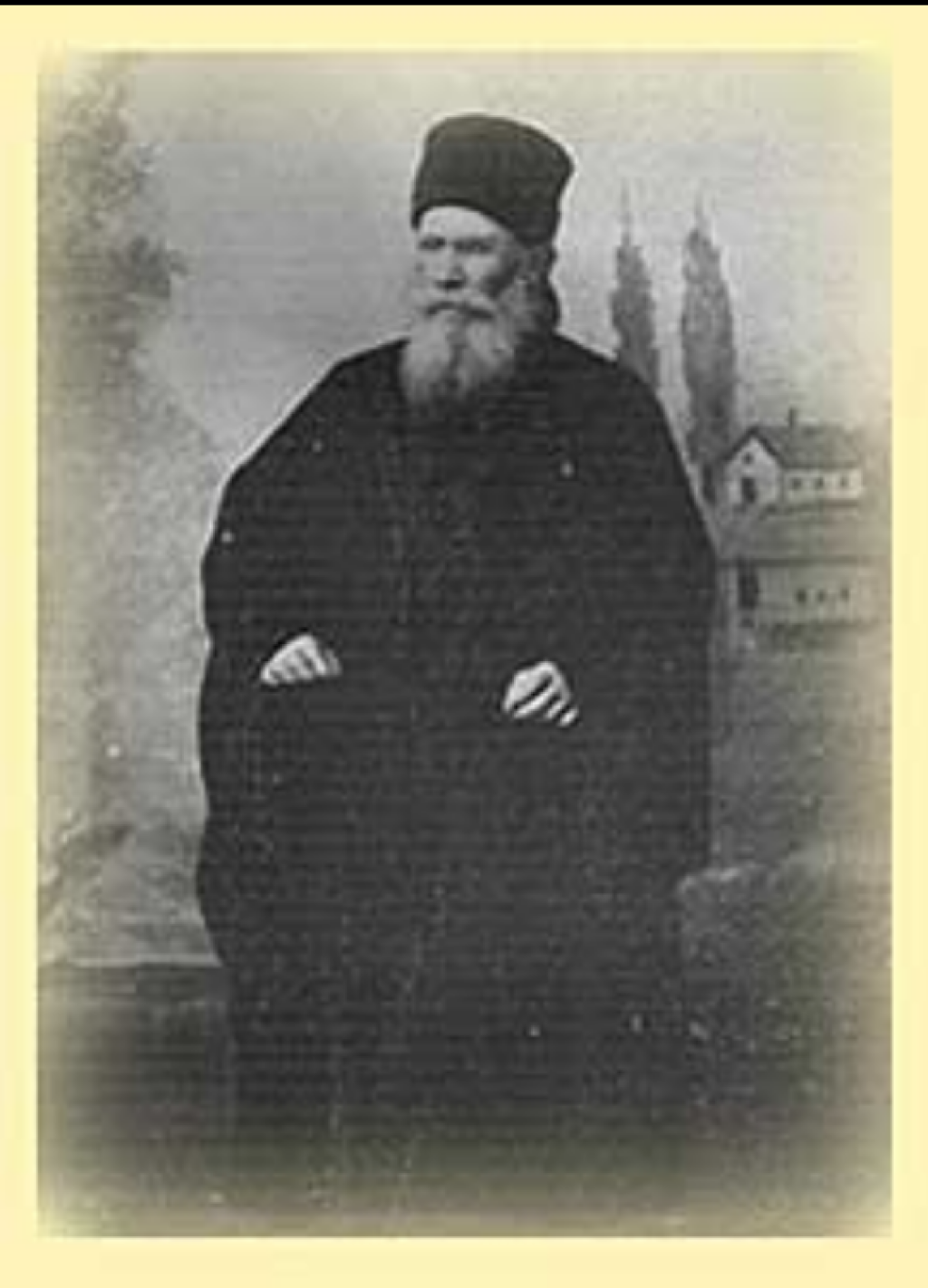This is Part II of a three-part series. Part I may be found here, and Part III will appear on Friday, 10/25. A version of this piece originally appeared on Gorky Media.
Ilya Vinitsky is Professor in the Department of Slavic Languages and Literatures at Princeton University. His fields of expertise are Russian Romanticism and Realism, the history of emotions, and nineteenth- century intellectual and spiritual history.
Translated by Emily Wang, Assistant Professor in the Department of German and Russian Languages and Literatures at the University of Notre Dame.
3.
On October 13, days before Kaganovich penned his reply, Pravda published a feuilleton by the poet Demyan Bedny, titled “On Vulgarity,” that was also inspired by the furious Gorky. Bedny's piece featured a verse adaptation of a stanza from one of Pushkin’s most famous poems, “Exegi Monumentum.” The object of Bedny’s critique was the vulgarization and commercialization of the great poet’s image, but it seems that its subtext took aim at specific literary opponents.
On Vulgarity
Vulgarity is multifaceted and ubiquitous. At one moment it will emerge in such a guise, at such a time, and in such a place that you can only gasp.
Even in our heroic time, in our heroic country, vulgarity will sometimes make itself known. Most often in the form of a cowardly, giggling anecdote. But sometimes it brazenly steps out onto the street, onto the public square. Now it flaunts itself at the intersection of Gorky Street and the square adorned with the bronze face of our greatest poet, Pushkin. The forehead of this vulgarity clearly displays the words
CAFÉ PUSHKIN.
What sort of “Pushkinists” allowed such a monstrosity to be built? Truly, Pushkin’s wise and proud testament “I erected to myself a monument not built by human hands” does not deserve such a conclusion:
No, I won’t die entirely. Justifications will be found
By dull vulgarians or by sleazy sorts,
And my name will grace the storefronts
Of cafes, restaurants, and beer-halls.
A week later, on October 19 or “Lyceum Day” — a holiday commemorating the teenage Alexander Pushkin's induction into the Imperial Lyceum at Tsarskoye Selo near St. Petersburg — the People’s Commissariat of Enlightenment and Deputy Chairman of the Committee for the Commemoration of the poet, A. S. Bubnov, wrote to Gorky that while he hadn’t personally enjoyed Bedny’s note in verse, Gorky’s written complaint to the Moscow Committee “had obviously had an effect.” It would not be an exaggeration to call Gorky’s protest (or slander) of Café Pushkin one of the first (and essentially one of the paradigmatic) acts of the committee he led. For many years, its activity would be instrumental in propagandizing a version of Pushkin that was serious, hard as bronze, and belonging to the people (and for this reason allegedly hated by his enemies).
4.
The hysterical reaction by the Soviet establishment to an apparently innocent incident — a reaction that struck at least one Western observer as symptomatic, but still curious — was deeply significant in the ideological context of the early Soviet period. It was inscribed into a campaign against vulgarity (or rather petty-bourgeois ideology) in all its antisocial manifestations that has long been associated with Gorky. In a political pamphlet written even during the Revolution of 1905, “On Gray Mediocrity,” Gorky had even called the soul of this cowardly bourgeois the throne “of a slippery toad called vulgarity [poshlost'].” An arduous battle with bourgeois vulgarity in Soviet life was being fought even in the 1920s: by Lenin in articles and speeches, by Mayakovsky in verses on “the bourgeois snout” and his play The Bedbug, by Leopold Averbakh in his critical escapades, by Yuri Olesha in the novel Envy, and to a certain degree by Mikhail Zoshchenko in his stories, and by the satirical magazine Krokodil in its feuilletons and caricatures. In the NEP era, bourgeois vulgarity was ultimately understood as a relic of the past, an absurd, repulsive, and still rather sticky substance that the New Soviet Person should, and easily could, just brush off.
Yet in the late 1920s and early 1930s, an even more aggressive, mythologized, and paranoid relationship to vulgarity was taking shape. Vulgarity was now a category under which a wide range of items and phenomena might fall, as long as they had been identified as hostile to the new order. “The bourgeois class has been exploded economically,” declared Gorky in a 1929 article,
but the blast has carried it far and wide, so that now, apparently, it is taking root in our reality […] A new class of people is emerging in our midst. This is the bourgeois, heroically inclined and capable of attack. He is sly, he is dangerous, he penetrates into every back-alley. This new class of bourgeois is much more powerfully organized internally than before. Today, he is a much more fearsome foe than he was in the days of my youth."
In his introductory speech at the August 17, 1934 opening of the All-Union Congress of Soviet Writers, Gorky proclaimed that Soviet writers would act in a united front “as people convinced that authentic humanism is that of the revolutionary proletariat, the humanism of a power called by history to liberate the whole world of workers from envy, greed, vulgarity, stupidity – from all the monsters that over the course of centuries have deformed working people."
In this period, vulgarity was beginning to be taken as a manifestation of a dangerous conspiracy against the USSR and Soviet culture. In his own speech at the Writers' Congress, Isaac Babel stated directly that “vulgarity is an enemy, it is counter-revolution,” and advocated for the creation of a “Soviet taste" tasked with locating and identifying all hostile vulgarity in Soviet literature and cultural life. Ironically, the enemies of vulgarity were not safe from political accusations of harboring this quality themselves. Already in the late 1920s, the critic Leonid Averbakh launched such an accusation at Gorky, while in 1936 the Party itself denounced Demyan Bedny for vulgar mockery of the country’s sacralized history, allegedly present in the libretto of Bedny's comic operetta The Valiant Knights [Bogatyry]. “This directive,” wrote poet Vladimir Lugovskoi, who joined in the campaign of smearing Bedny, “is completely correct, but especially valuable is its motivation. After this the excesses of all sorts of vulgar individuals who dare to make a mockery of the Russian people and its history will cease. Up until now it has been considered good form to be ashamed of our history.” As a general rule, in the years around 1930, the meaning of the word “vulgarity” adapted unswervingly to changes in the party line, or, more precisely, the tastes of its leader.
Within the framework of the anti-vulgarity campaign, images of Pushkin and his killer Georges Dantes (d'Anthès) acquired a special meaning. This motif had already had a prominent position in the Soviet culture of the 1920s — for example, it is featured in Mayakovsky’s 1924 poem “Anniversary” — but it had not yet been molded by a governmentally sanctioned political program; that is, it was not conceptualized as part of the mission of Socialist Realism, which was its own sort of aesthetic and political directive. Already at the dawning of a new era, in the verse pamphlet “Genius and Vulgarity,” dedicated to the ninety-second anniversary of Pushkin’s death (which was released separately in 1931 and reworked in 1937), the keen Soviet courtier Demyan Bedny portrayed the personification of Vulgarity (with a capital V) urging insignificant Danteses to commit terrible crimes against culture and the people. Notably, Mayakovsky has a “lighter” touch with the victory of the Soviet order over Dantes: “We would ask him / ‘Who are your parents? / With what were you occupied / Before 1917? / That would be it for Dantes.” Bedny presents the battle with vulgarity as never-ending and the most decisive war of the present era:
Before a bloody Pushkin – in the form of Dantes –
Stood not only a passing rogue.
It is Vulgarity itself, its incarnation,
Vulgarity enacted this “legal” vengeance
Against the one who doomed himself to death,
Standing face-to-face with it!
Vulgarity with an envious and vengeful gaze
Always walked alongside Pushkin…
<…> Vulgarity executes the bright, the boldest,
Not pulling back from them by a single step,
Of all the most despicable enemies of the new life,
Vulgarity is the most despicable.
The new order, surrounded by its slander,
Must be cleansed of scourges large and small,
Firmly remembering that Vulgarity is armed,
A vile enemy, and that Pushkin’s needless death
Is one of its greatest victories!
The sacralization of Pushkin, confirmed at the 1934 Writers’ Congress, implied, in particular, the protection of his “holy name,” biography, and works from the encroachments of “vulgar individuals,” among whom one might happen to find even specialists of his work (this period, incidentally, saw the first purges of prominent Pushkinists), not to mention other Soviet literary figures, party bureaucrats, and even Moscow restaurateurs. According to the logic of this campaign, Gorky (the head of the Pushkin Commission) and Bedny (the executive editor of Pushkin’s six-volume collected works) would act as official defenders of Pushkin from “vulgar individuals” who were anathema to the Soviet people’s love of their first poet.
But, as is evident from Kaganovich’s reply to Gorky, this cleansing process had its internal contradictions: in the case of the Pushkin Café, there was the fact that the initiative to name it after the great poet itself originated in influential Party-literary circles — specifically, Pushkin Committee member Mikhail Kol’tsov and those he represented.



